Description
Beginning of Guidance II:
Hanbali Fiqh & Objectives of Fasting
Islam recognizes that practice of faith is an integral. Belief is not considered sound without action. Hence why four out of the five pillars of Islam are in relation to actions. Unfortunately though the prism in which the legality of soundness of doing deeds has been discussed has sometimes not emphasized enough elements of sincerity and spirituality which are as integral.
Scholars of Islam discussed the holistic conceptualization of servitude within the actions of faith, the importance of the heart in one’s application, and awareness of the spiritual impact on one’s actions outside of relegating ritual to simply the motion of action.
They delved into expounding how the motion of worship reflects on the complete being of a person, their character, and translates from motion to devotion.
Scholars of the Islamic tradition emphasized how important meaningful action is if it fulfills the condition of being done correctly and accordance to guidance. They further related how the way the Prophet Muhammad ﷺ taught the faith of Islam holistically without compartmentalization and exemplified the depth of faith in its integrals being made up of both actions and belief, spirituality and mechanics, and heart and body. He taught how these dimensions are understood through the three components and levels of faith of Islam, Iman, and Ihsan; as some scholars further referred to as shariah (law) and haqiqah (reality).
As jurisprudence developed into the science of ascertaining legality, elements of spirituality were relegated to separate texts from the holistic faith approach and in turn, unfortunately in the minds of some, caused a separation of the inseparable, of spirituality separated from ritual.
This course explores worship beyond the scope of ritual legality. It will infuse spirituality in achieving meaningful prayer. Motion becomes devotion through purification of heart, mind, and action.
We will study Hanbali Fiqh of Fasting via Umdat Al Fiqh of Imam Ibn Qudamah as well as the spiritual work Bidayat Al Hidayah by Imam Al Ghazali رحمهم الله and others.
Important: It is *not* a prerequisite to have taken Beginning of Guidance I to study this class, but it is generally encouraged to eventually take it.
What you will learn in this course:
- Importance & Development of Legislation of Fasting in Islam
- The Quran’s Conceptualization of Fasting
- The Objectives of Fasting
- Fasting: The Gateway to Taqwa (Consciousness of Allah)
- Purification of Soul and Heart
- The Levels of Fasting
- Ramadan: A practical breakdown of how to make the best of the blessed month
- Fiqh of Fasting
- Contemporary issues related to fasting will be discussed when applicable
- Access to ask open Question and Answer
Required Texts:
- Umdat Al Fiqh (will be provided for you)
- Bidayat Al Hidayah by Imam Al Ghazali
Who Is this For?
This course is suitable for anyone interested in a comprehensive Fiqh of Fasting seminar that caters to discussing the spiritual components of worship. Audiences should be able to cognitively understand the material and ask poignant questions (the class is not suitable for children who cannot).
Your Instructor

This is an On-Demand course where you can download video of the sessions at your convenience. It is not a live course. There is a group to ask questions and interact with the instructor.
Stay updated on social media – @thelegacyi
Questions or Inquiries, please email: admin@legacy.institute
*This course is not refundable.


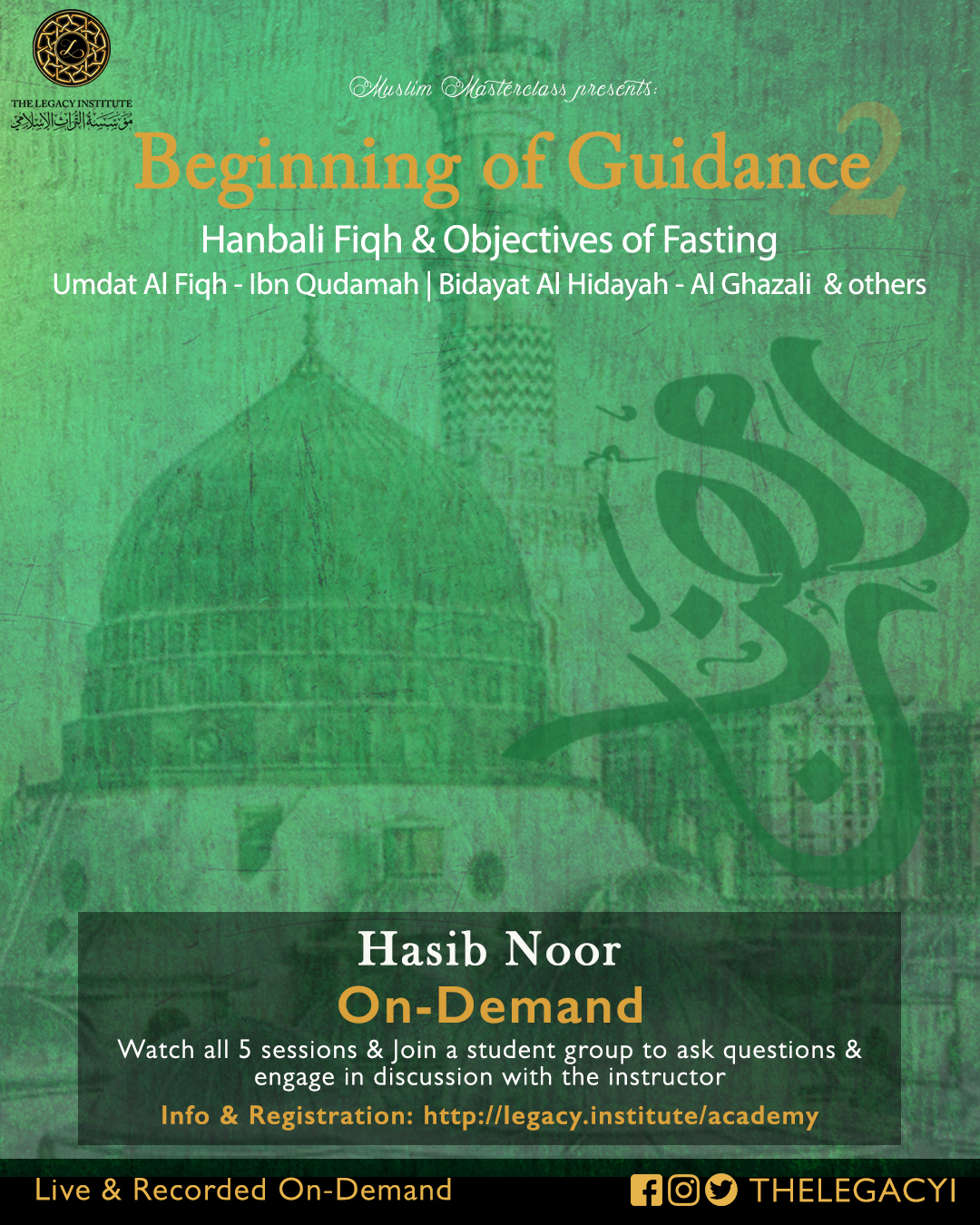
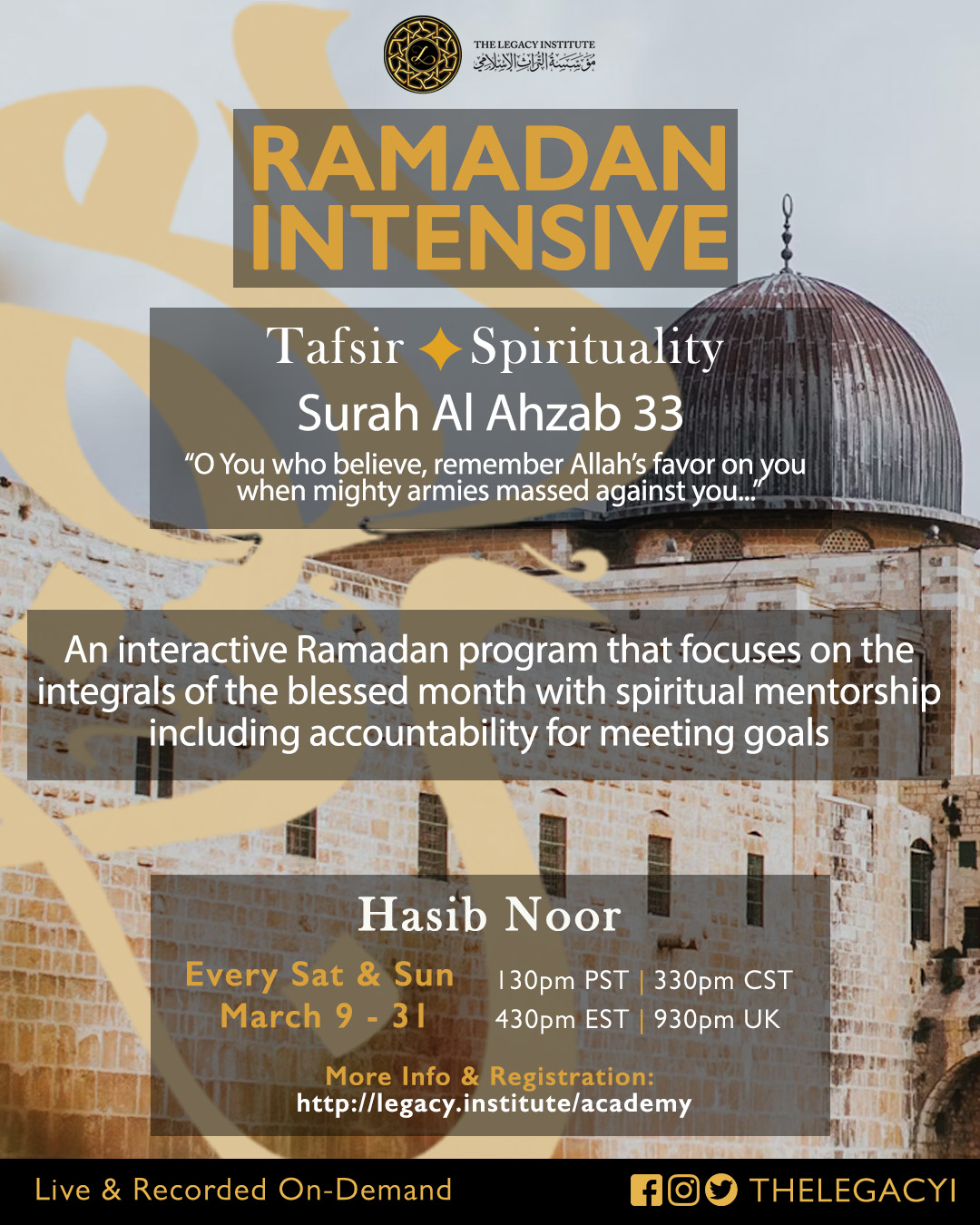
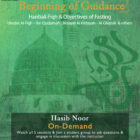
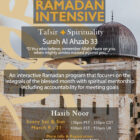
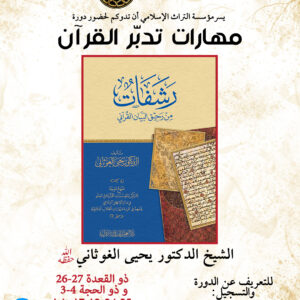
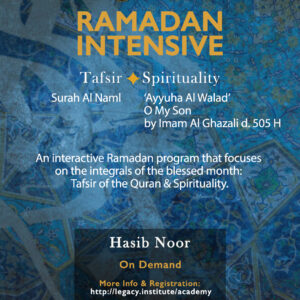
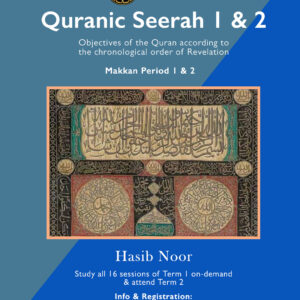
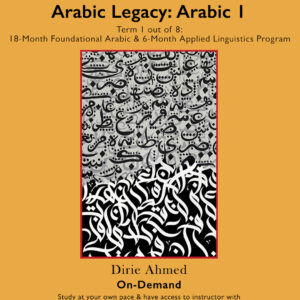
There are no reviews yet.